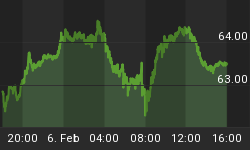Polish Prime Minister Marek Belka says the inability of the EU summit to come to a budget compromise lies squarely in the selfishness of the wealthy EU states.
The EU has long been a vehicle to shift money from "wealthy" countries such as Germany and the Netherlands to "poorer" countries. German chancellor Schröder said: "The history of the EU is a series of compromises paid for by Germany." At the same time, some of the newer members in Eastern Europe have extremely aggressive tax policies, with some charging no income taxes at all. There is nothing wrong with free market competition and offering tax incentives; but conversely, "wealthy" states should be forgiven to think that there is no need to subsidize the exporting of jobs to these countries.
And guess what: the "wealthy" EU states have no money to spend. It comes as no surprise that no budget deal is reached. While much of the media calls this embarrassing, it is not so different from national governments anywhere in the world not agreeing on a budget.
Tony Blair says "we need a fundamental reform of how we spend money in the EU." He points out that the EU will continue to spend 7 times as much on agricultural subsidies in 2013 as it spends on research, technology and education. What Blair highlights is important: the EU needs to find a way to operate in the 21st century with 25 member states or more. It needs to focus on how to deal with the challenges of the future. Breaking with "business as usual" is a healthy wake up call. The greatest challenges ahead include how to deal with globalization, how to deal with the aging workforce, and how to deal with mass unemployment.
If the French want to pursue a protect their welfare system, while Eastern Europe and Britain adapt to changing requirements in the world, they should all be allowed to pursue their paths. Each country has to be held responsible for the consequences of their actions. Most importantly, this means that one country that is fiscally irresponsible must not be bailed out by another. We expect the yield spread (the difference in interest rates paid on debt) between fiscally responsible countries, such as Finland, and less responsible countries, such as Italy, continue to widen. This does not mean that the Euro is in jeopardy, but it has to be made clear who is ultimately responsible for the debt, and the responsibility must lie with the national governments. In the U.S., different states also pay different interest rates on their debt. In California, Schwarzenegger decided to pledge sales tax revenue as collateral to its new debt issues, and was able to drastically lower the cost of borrowing in a state that was on the verge of bankruptcy.
If anything, we see the lack of a budget deal in the European Union as a positive sign on government spending. If there is no deal, less money will be spent. Governments need to adjust their spending habits to the economic environment -- countries like Germany and France continue to have deficits exceeding 3% of GDP as agreed in the European 'stability pact.' European politicians may not like Blair, but someone questioning the norm is a good change of pace. Europeans want reform, and they want to be involved - Blair might end up being a catalyst for change after all.
What are the implications for the Euro? Again, we do not see this as a crisis, neither do we see this as something entirely unexpected. The current turmoil may keep a lid on the Euro's rise, but eventually, the pressures caused by the current account deficit in the U.S. on the dollar, in our view, outweigh the temporary uncertainties in Europe. In the meantime, gold, the only currency with intrinsic value, is shining and has reached new highs versus the euro.















